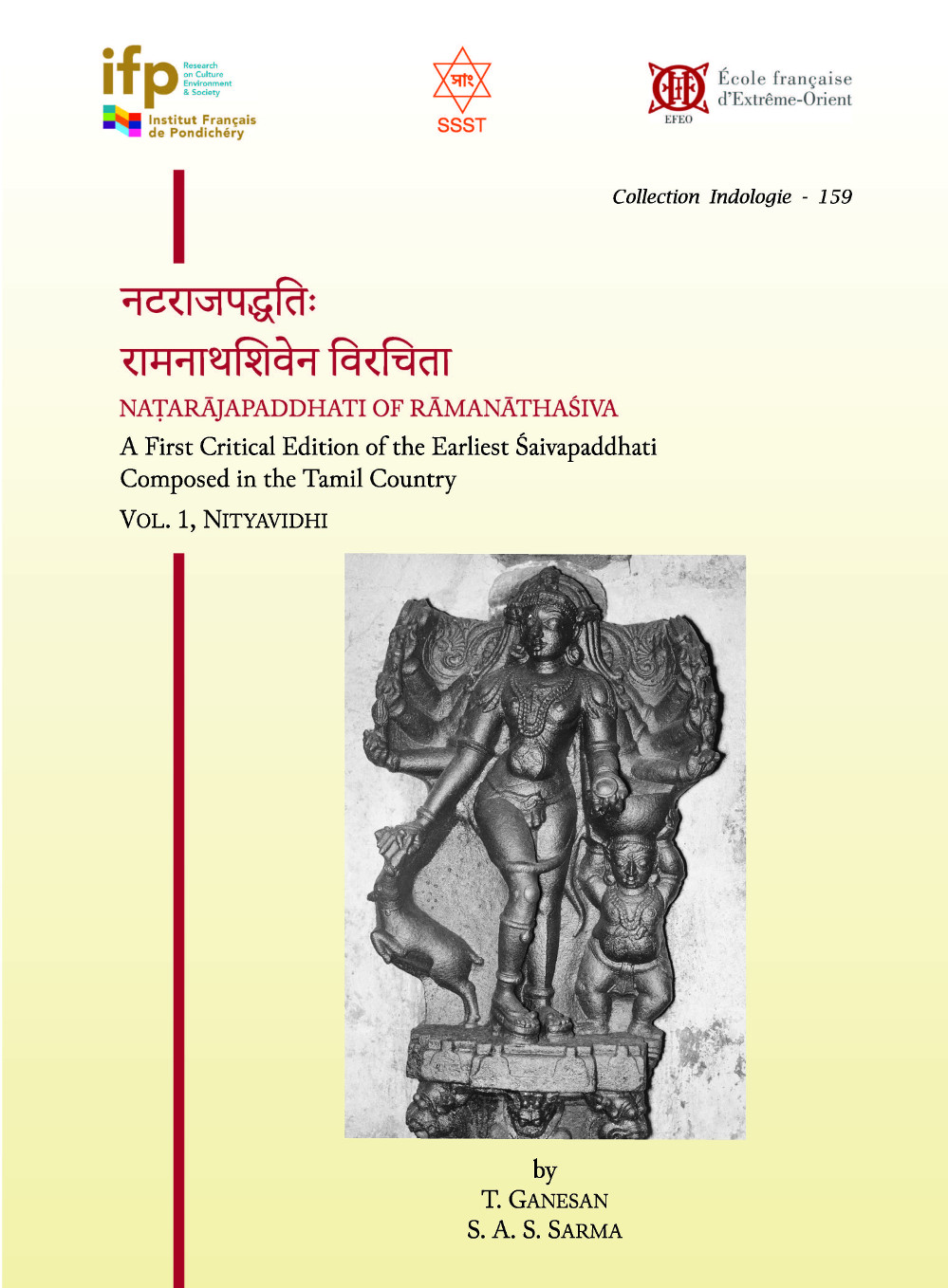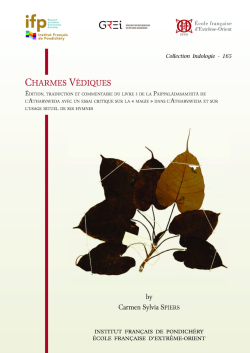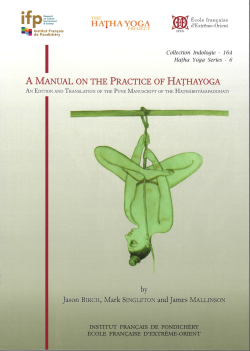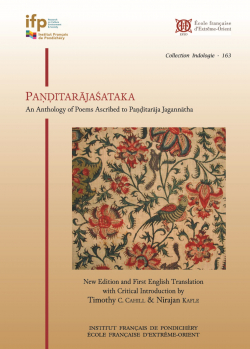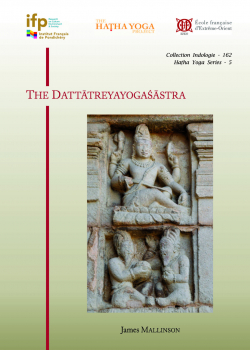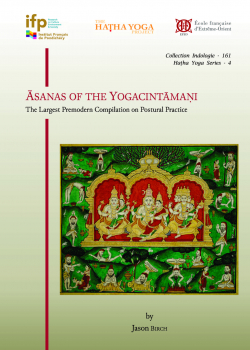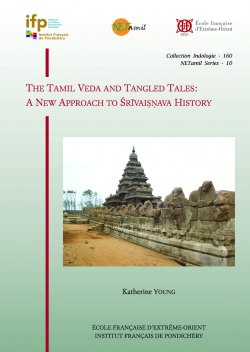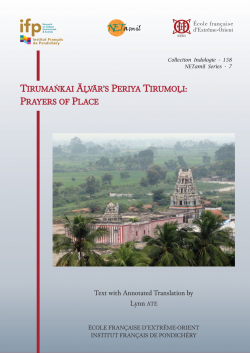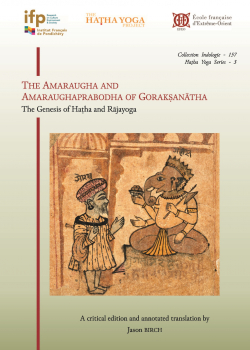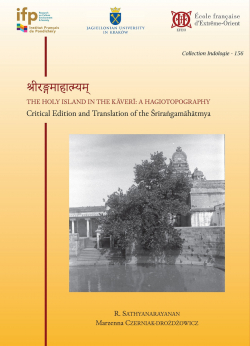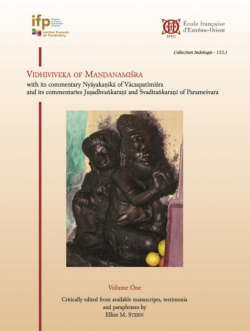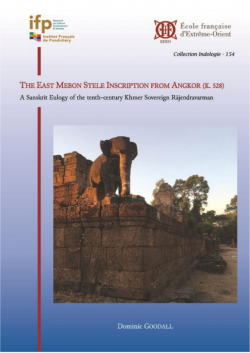Le catalogue des Éditions de l'EFEO, riche d'environ 900 titres, propose des publications portant sur l'Asie, depuis l'Inde jusqu'au Japon, et couvrant un large spectre disciplinaire en sciences humaines et sociales (archéologie, histoire, anthropologie, littératures, philologie, etc.).
Ces publications, si elles s'adressent d'abord à la communauté scientifique, intéressent également un public attiré par les civilisations et sociétés d'Asie.
Naṭarājapaddhati of Rāmanāthaśiva
A First Critical Edition of the Earliest Śaivapaddhati composed in the Tamil Country. Vol. 1 Nityavidhi
Collection : Collection Indologie
Numéro de collection: 159
Édition: EFEO - Coéditions, Institut français de Pondichéry (IFP)
Année de parution: 2024
Statut : Disponible
20,00 €
ISBN-13 : 9782855392936
ISSN : 0073-8352
Largeur : 17 cm
Hauteur : 24 cm
Poids : 0.37 kg
Nombre de pages : 195
Distributeur : EFEO Diffusion, EFEO Pondichéry Contact : shanti@efeo-pondicherry.org
Géographie : Inde
Langue : Anglais, Sanskrit, Tamoul
Lieu : Pondichéry
Support : Papier
Description :
xix+176 p., anglais, sanskrit, tamoul
ISBN EFEO : 9782855392936
ISBN IFP : 9788184702521
Collection Indologie n˚ 159
Résumé
Table des matières
Notes
Vous pouvez également commander ce titre auprès de notre centre de Pondicherry via l'adresse suivante :
shanti@efeo-pondicherry.org
Ou bien, auprès de l'Institut français de Pondicherry via l'adresse suivante :
library@ifpindia.org
Les commandes à destination de l'Inde doivent être placée auprès de notre centre de Pondicherry ou de l'Institut français de Pondicherry.
Livres similaires
Collection Indologie
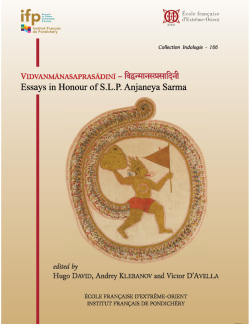
Vidvanmānasaprasādinī
S.A.S. SARMA, Dominic GOODALL, Harunaga ISAACSON, Suganya ANANDAKICHENIN, Hugo DAVID, Kei KATAOKA, Victor D’AVELLA, Giovanni CIOTTI, Andrey KLEBANOV, Émilie AUSSANT, Maria Piera CANDOTTI, Tiziana PONTILLO, Sibylle KOCH, Vincenzo VERGIANI, Timothy C. CAHILL, Somedeva VASUDEVA, Luther OBROCK, M. VINOTH, Maṇi DRĀVIḌA, Akane SAITO, Alex WATSON, Daniele CUNEO, Yūto KAWAMURA
60,00 €
2026
• Disponible
